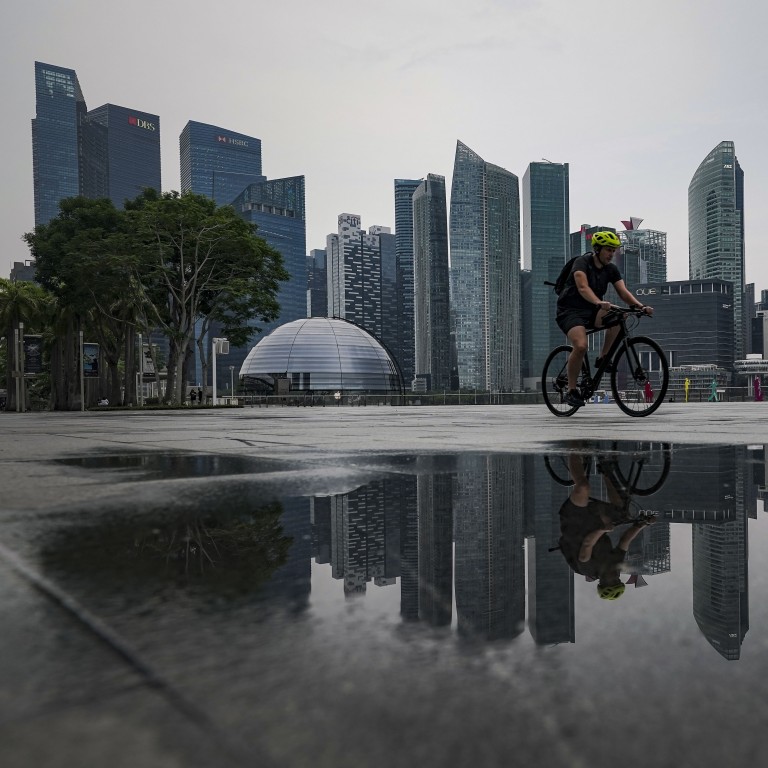
Coronavirus: Singapore shuns US-style mass reopening; Thailand imposes stricter curbs in Bangkok
- Health Minister Ong Ye Kung said Singapore would seek a ‘middle path’ between approach taken by US and UK, and outlook China and Australia have adopted
- Meanwhile, a UK study found that most young people face an ‘extremely low’ risk of illness and death from Covid-19, as the Philippines let children go outside
“I think what we want is to take a more middle path. Get ourselves vaccinated, that’s critical, maintain both containment and mitigation measures,” Ong said in an interview with Bloomberg Television’s Haslinda Amin, adding the city state would “open up progressively package by package, nothing big bang, and each step of the way make sure we keep populations safe.”
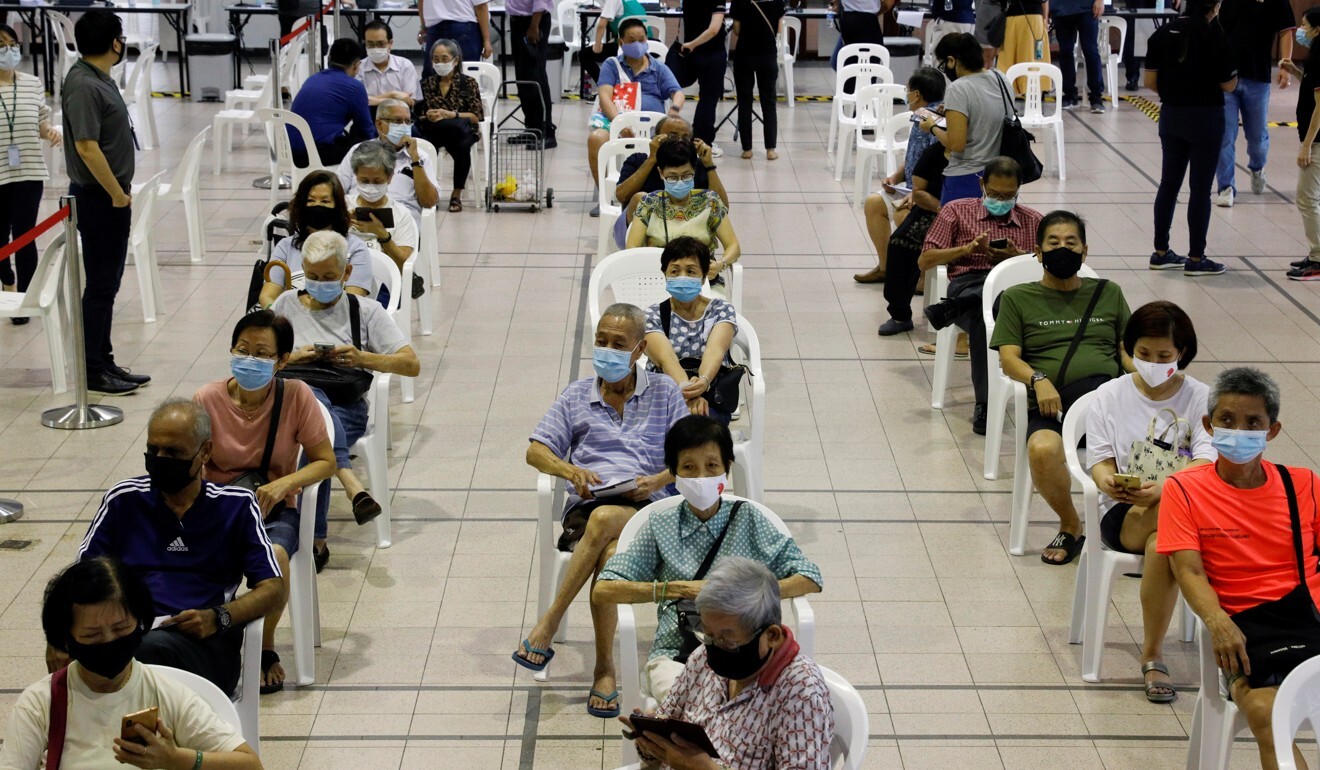
Singapore is on track to hit its goal of two-thirds of the population fully vaccinated by National Day on August 9, although Ong warned that herd immunity may be elusive because of more transmissible variants of the disease.
“To get herd immunity you may need 90-95 per cent of your population vaccinated and we may not get there, not even a place like Singapore where there’s a lot of trust between people and institutions,” Ong said. “We may get 80 per cent if we are lucky, which means it’s difficult to get to herd immunity, but what we can achieve is to arrive at an endemic situation where you can live with the virus.”
Thailand imposes stricter curbs in Bangkok
Some measures will take effect from Saturday, others from Monday, and come as Thailand reported one of its highest daily infection tallies at 9,276, with 72 new deaths, amid a battle against its longest-running and most severe outbreak so far.
“In the 10 provinces there will be restrictions on unnecessary travel and people cannot leave their home between 9pm and 4am unless necessary,” Apisamai Srirangsan, spokeswoman for the government’s Covid-19 task force told a televised news briefing.
Malls, beauty clinics, spas and massage shops in Bangkok and five surrounding provinces must close from Monday, while virus testing facilities will be expanded to better detect and isolate clusters, Apisamai said.
Thailand mulls booster shots amid Sinovac efficacy concerns
Gatherings will be capped at five people, although there will be some exceptions. The government also discouraged inter-provincial travel.
Thailand on Friday took delivery of AstraZeneca vaccines donated by Japan.
Apisamai said the AstraZeneca shot and that of Pfizer and BioNTech would be used for elderly people and those with medical complications, plus foreign residents over 60, diplomats and athletes competing overseas.
She also said medical personal would be offered Pfizer-BioNTech mRNA booster shots.
Most Thai medical workers were administered the vaccine of China’s Sinovac, which some experts say may be less effective against more transmissible coronavirus variants.
Bottlenecks hit Japan’s vaccine roll-out
Unlike many places, Japan has an abundant supply of vaccines – as of the end of June, it had received 100 million doses of the Pfizer-BioNTech vaccine, of which 44 million had been administered. Rather, the issue appears to be a misallocation of shots, with too many doses going to places where demand is low, while others run out.
In total Japan has given out 52.6 million doses, enough to cover about 21 per cent of the population, according to Bloomberg’s vaccine tracker.
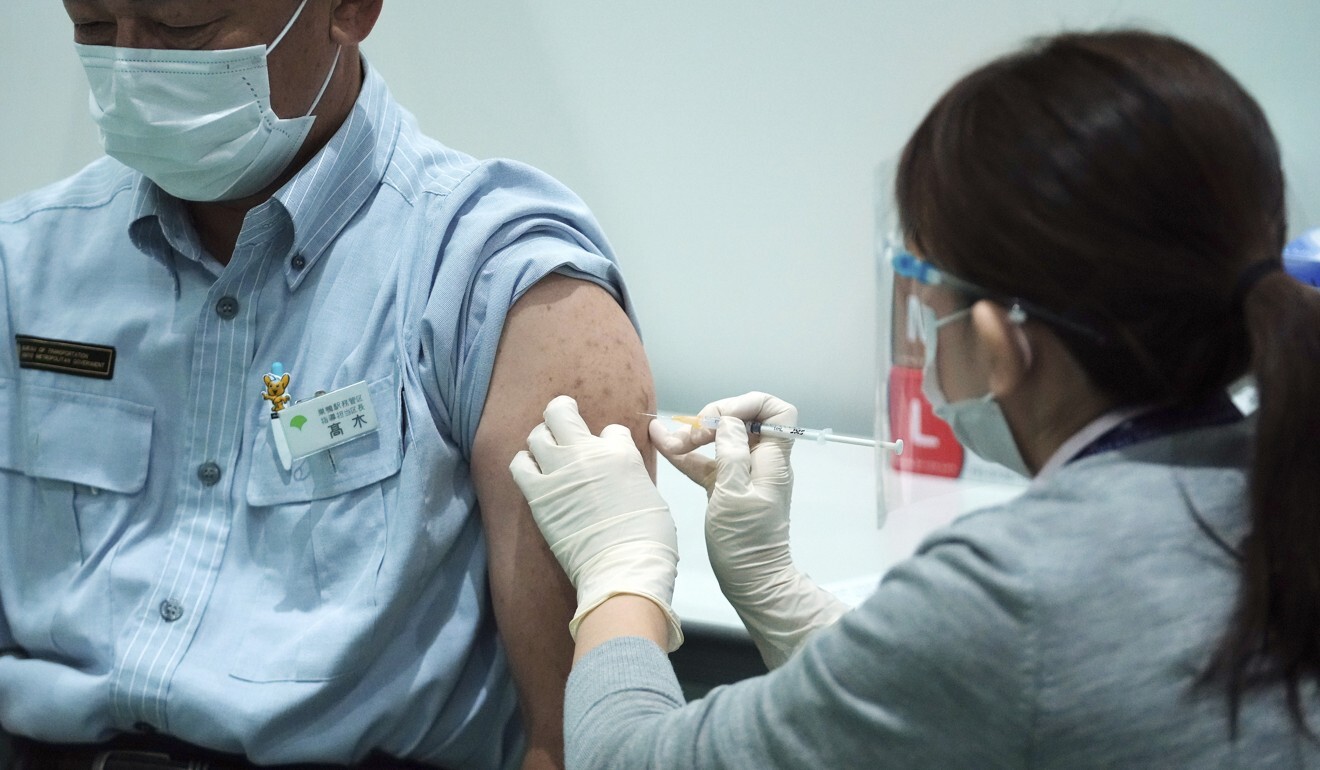
Nerima, the second most populous of central Tokyo’s wards, is getting less than half the number of doses it requested for the period from July 5 to August 1, according to a spokesman. The ward has had to suspend new reservations at the vaccination centres it runs, as well as instruct private clinics to keep new appointments to a minimum as supplies wane.
To combat the asymmetry in distribution, the central government said late last Friday it would prioritise shipping vaccines to municipalities that have little inventory left in August. According to the health ministry, locations with more than six weeks of inventory will have their future shipments cut by 10 per cent. Until recently, doses had been dispensed based on municipal requests and population.
Fans banned from Olympic venues in Tokyo amid spike in Covid-19 cases
Further complicating the task is the fact that a centralised vaccination registry system has not been updated promptly, according to reports from the Asahi newspaper and other local media. The arcane recording system relies on individuals receiving vouchers by mail to confirm their eligibility for shots. Some places are vaccinating people without vouchers first, assuming they’ll receive them later, and these doses are not promptly reflected in the system.
Indonesia widens restrictions
The emergency measures will be similar to those in place on Bali and Java and will impact 15 cities in Sumatra, Kalimantan and Papua, chief economic minister Airlangga Hartarto told a news conference.
Medical workers will also be given booster shots of the vaccine, he added.
Earlier on Friday, Indonesia received desperately needed supplies of oxygen and protective equipment from neighbouring Singapore to support its overwhelmed health care system.
Hospitals are struggling to cope, with many now refusing new patients, leaving scores to die at home, while desperate relatives hunt for oxygen tanks to treat the sick.
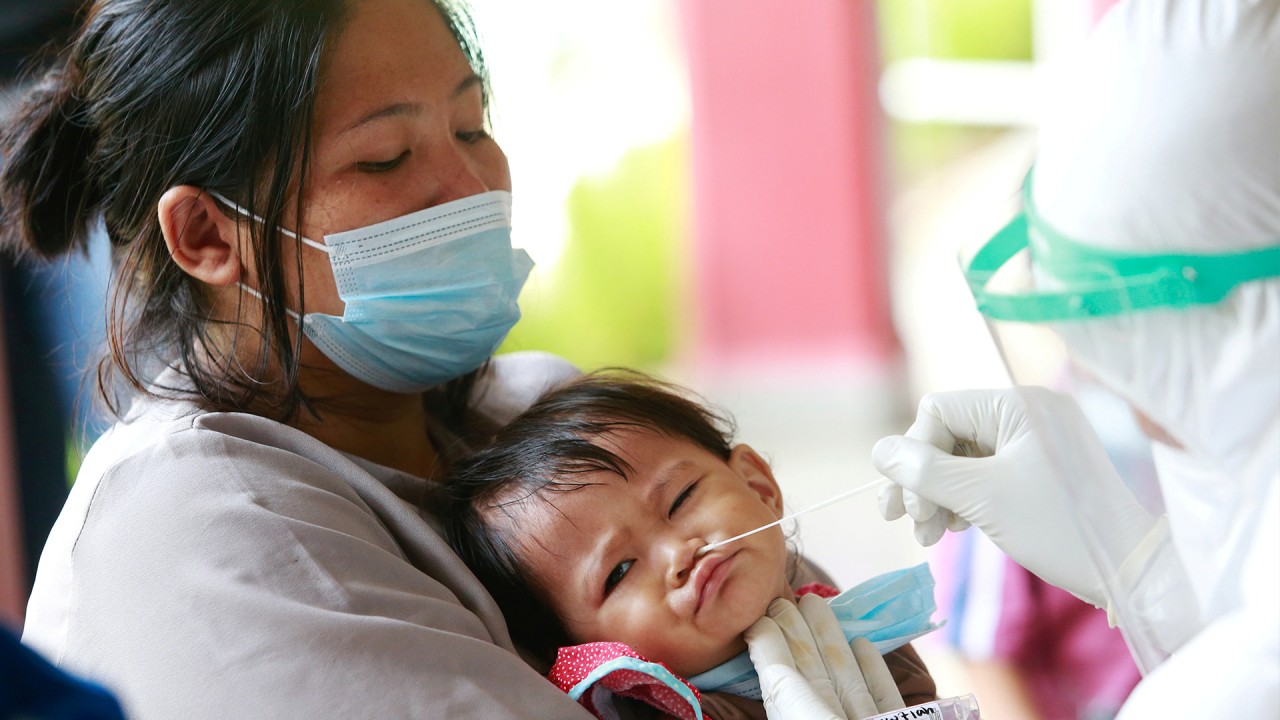
05:46
‘The fear is always there’, says Indonesian doctor working on Covid-19 front line
Singapore sent supplies including oxygen cylinders, ventilators, masks, gloves and gowns on two air force planes to Jakarta, the city state’s foreign ministry said.
Another 1,000 ventilators were due to arrive from Australia later Friday, while Indonesian officials plan to buy more supplies of oxygen and other equipment.
The supplies are sorely needed as hospitals set up makeshift treatment tents in parking lots and doctors and other medical workers increasingly become infected.
Nearly 1,000 Indonesian medical workers have died of Covid-19, including more than a dozen who were already fully inoculated, according to the country’s medical association.
Indonesia reported 38,124 new coronavirus cases and 871 fatalities on Friday.
Young people at ‘extremely low’ risk from Covid-19: study
Most young people face an “extremely low” risk of illness and death from Covid-19 and have no need to shield from the virus, according to researchers behind a large UK study.
The analysis, which its authors say is the most comprehensive on the topic to date, backs up clinical reports that show children and teens are less likely to be hospitalised or face severe effects from the virus.
Covid-19 does increase the chance of serious illness in the most vulnerable children – those with complex disabilities and severe existing medical conditions – but even in those cases the risks are smaller compared with adults, the study found.
“It is reassuring that these findings reflect our clinical experience in hospital – we see very few seriously unwell children,” Elizabeth Whittaker, senior clinical lecturer in paediatric infectious diseases and immunology at Imperial College London, said in a statement. “We hope this data will be reassuring.”
Young South Koreans blamed as Seoul tightens curbs amid virus surge
Though the data only measured the period up to February, the situation has not changed recently with the proliferation of the Delta variant, Whittaker said.
Under 18s in England had about a 1-in-50,000 chance of being admitted to intensive care with coronavirus during the first year of the pandemic, one study in the analysis found. A number of conditions that were previously thought to increase the risks of related illness, like active asthma or cystic fibrosis, brought “very little risk”, researchers said at a press briefing.
“There’s a general feeling among paediatricians that probably too many children were shielded in the first elements of the pandemic and that there’s probably very few children that need to shield according to these data,” Russell Viner, a professor of child and adolescent health at University College London, said at the briefing. He was senior author of two of the studies involved.
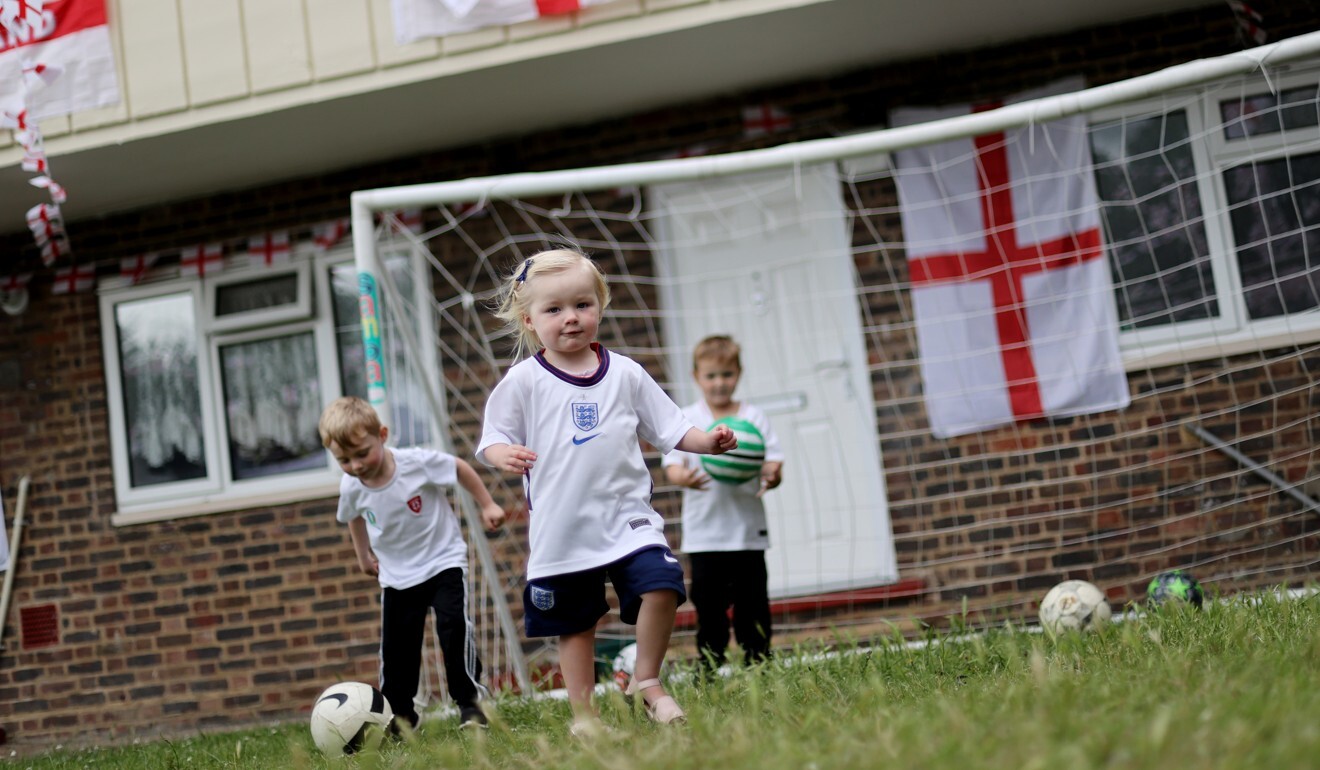
While most children have been spared the worst effects of the disease – showing mild to no symptoms – a small number of severe cases have led to hospitalisation and death. A growing cohort is also suffering from so-called long Covid – residual symptoms after infection ranging from extreme fatigue to depression. With children now driving the spread of cases in many countries, governments have come under pressure to speed up inoculations for younger people.
The studies on young people did not look at the impact of long Covid, the statement said.
Vietnam’s biggest city enters lockdown
The city of 9 million had previously been subject to travel restrictions for a month but infection rates were steadily rising – with more than 9,400 cases registered. Before the current outbreak kicked off in late April, Vietnam had recorded fewer than 3,000 cases across the entire country.
Vietnamese authorities are not using the term lockdown but are calling the measures “social isolation orders”.
Ho Chi Minh City residents are now barred from gathering in groups larger than pairs in public, and people are only allowed to leave home to buy food, medicine and in case of emergencies.

Police have set up checkpoints at city borders and only those with negative test results can get in.
Airlines can carry a maximum of 1,700 passengers to the capital Hanoi per day, aviation authorities said, while trains between the two major cities have been suspended.
Vietnam, with a population of close to 100 million, is juggling its desire to contain the virus with its economic growth goals. The country has been among the best performing economies in Asia, reporting strong growth of 6.61 per cent in the second quarter.
Authorities want to reach herd immunity by the end of the year or early 2022. Almost 4 million vaccine doses have been administered so far. The country is developing its own vaccines and has ordered millions of doses from abroad.
Philippines lets children go outside
Children in areas under the two loosest quarantine levels can now go to parks, playgrounds, outdoor restaurants and tourist sites, presidential spokesman Harry Roque said in a statement on Friday. Still, they are banned from going to shopping centres, he said.
Philippines keeps kids under lockdown, harming chances of economic rebound
Economic managers have been calling for looser movement curbs on children as family activities can help drive consumer demand and boost an economy that is struggling to recover from the pandemic. The capital region and nearby provinces, the Philippines’ key economic engine, are under the second-lowest quarantine level.
The Philippines is battling one of the worst coronavirus outbreaks in Asia, with nearly 1.46 million cases and more than 25,000 deaths as of Thursday. The daily case count has eased from a record high in April. About 4.5 per cent of the population are fully vaccinated.
Australia secures millions of doses ahead of schedule
Pfizer doses will ramp up to about 1 million a week from July 19, more than double the weekly average of about 350,000 in June, the prime minister’s office said. The inoculation campaign is expected to deliver 2.8 million jabs this month, and more than 4.5 million in August.
“We’ve been working on this for some time to get those brought forward,” Morrison said in a separate Australian Broadcasting Corp. interview on Friday. “We really are hitting the marks we now need to hit. We’ve done a lot of catch up over the month of June.”
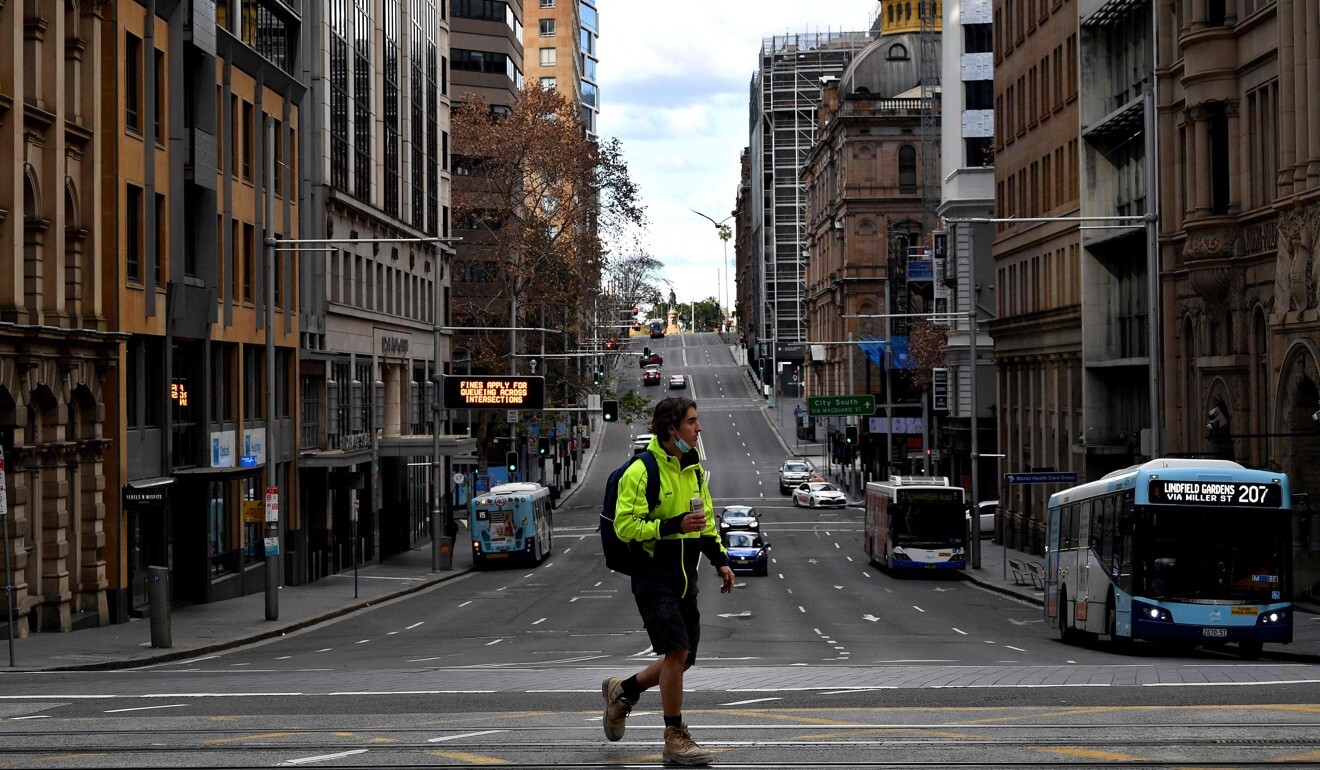
Sydney, the most populous city, is in the midst of a lockdown that will last for at least three weeks. Just over a week ago, outbreaks forced half of the nation’s population into stay-at-home restrictions.
Authorities on Friday pleaded with Sydney residents to stay at home, as the surrounding state of New South Wales reported its biggest rise in local cases for the year.
“New South Wale is facing the biggest challenge we have faced since the pandemic started,” state Premier Gladys Berejiklian told reporters in Sydney. “At the moment the numbers are not heading in the right direction.”
“Please do not leave your house. Do not leave your home, unless you absolutely have to,” she added.
Forty-four locally acquired cases were reported on Friday. eclipsing 38 a day earlier, with 29 of those having spent time in the community while infected. There are currently 43 cases in hospital, with 10 people in intensive care, four of whom require ventilation.
Malaysia sees record new cases
The Southeast Asian nation added a record 9,180 Covid-19 cases, as well as 77 deaths, according to health director general Noor Hisham Abdullah. The previous record was 9,020 on May 29.
Although an accelerated vaccine roll-out has allowed the government to ease virus curbs in six states, providing some breathing space to the economy, much of the country remains under lockdown since June 1.
The latest figures bring the total number of infections in Malaysia to 817,838, according to Noor Hisham. Selangor, the richest state, continue to lead the surge with 4,400 cases on Friday, followed by 1,271 from capital city Kuala Lumpur.
North Korea rejects AstraZeneca jab over side effects
Covax has said it would provide nearly 2 million doses of AstraZeneca’s shots to North Korea. The first batch had been expected in late May but was delayed amid protracted consultations, Seoul said last month.
North Korea has not reported any Covid-19 cases, a position questioned by South Korean and US officials. The reclusive country has, however, imposed strict antivirus measures, including border closures and domestic travel curbs.
According to the report by the Institute for National Security Strategy (INSS), which is affiliated with South Korea’s spy agency, Pyongyang is now looking at other vaccine options.
How will ‘emaciated’ Kim ride out a famine in North Korea? With China’s help
The Global Alliance for Vaccines and Immunisation alliance, one of the organisations that co-leads Covax , did not immediately reply to a request for comment.
The INSS report also said North Korea is not keen on Chinese vaccines due to concerns they may not be that effective, but it has shown interest in shots made in Russia, hoping they would be donated free of charge.
“It’s leaning towards the Russian vaccine, yet no arrangements have been made,” Lee Sang-keun, director of strategic research on the Korean peninsula at INSS, said, citing unnamed sources.
On Wednesday, Russian Foreign Minister Sergey Lavrov said Moscow has offered Pyongyang vaccines on a number of occasions.
Lee added that North Korean authorities had become concerned about the AstraZeneca vaccine after reports of rare but serious blood clotting events among some people who received it.
India prepares for next wave of infections
On Thursday, India’s Health Ministry announced more than 800 confirmed deaths and 45,892 new cases,
Health Minister Mansukh Mandaviya said 50 field hospitals with up to 5,000 beds, 20,000 intensive care unit beds, 700 paediatric centres and storage facilities for medical oxygen in 700 districts will be set up in nine months.
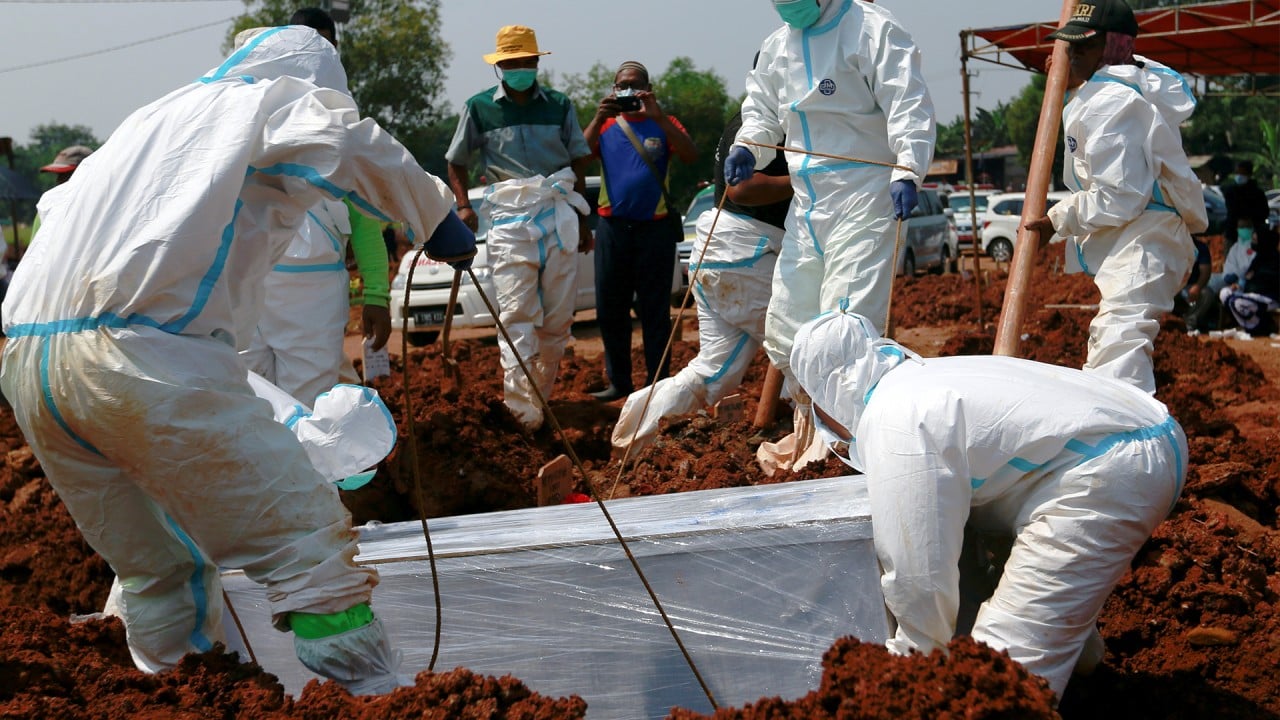
03:51
Global Covid-19 death toll hits 4 million as WHO says vaccines ‘surest way to prevent more deaths’
India increased the numbers of oxygen-supported beds to more than 400,000 from a mere 50,000 in March last year, Mandaviya said on Thursday.
More than half of India’s reported 400,000 coronavirus deaths, the third-highest in the world, have occurred in the past two months as the Delta variant of the virus tore through the nation and overwhelmed its already strained health system.
New cases are on the decline after exceeding 400,000 a day in May. Total cases stand at 30.7 million.
Myanmar’s vaccination drive grinds to a halt
The Southeast Asian country has received no vaccine supplies since early May, with just 1.75 million of a population of about 55 million fully vaccinated, according to Health Minister Thet Khine Win. The administration is now in talks with Russia and China to urgently secure more shots, officials said.
Myanmar’s vaccination roll-out, started by ousted leader Aung San Suu Kyi in January, faltered as India restricted exports by Serum Institute of India, which had a contract to supply 30 million doses, and deliveries from the global Covax Facility never materialised. With new variants spreading across the country, daily infections have set record highs this week, pushing total fatalities to almost 3,600.
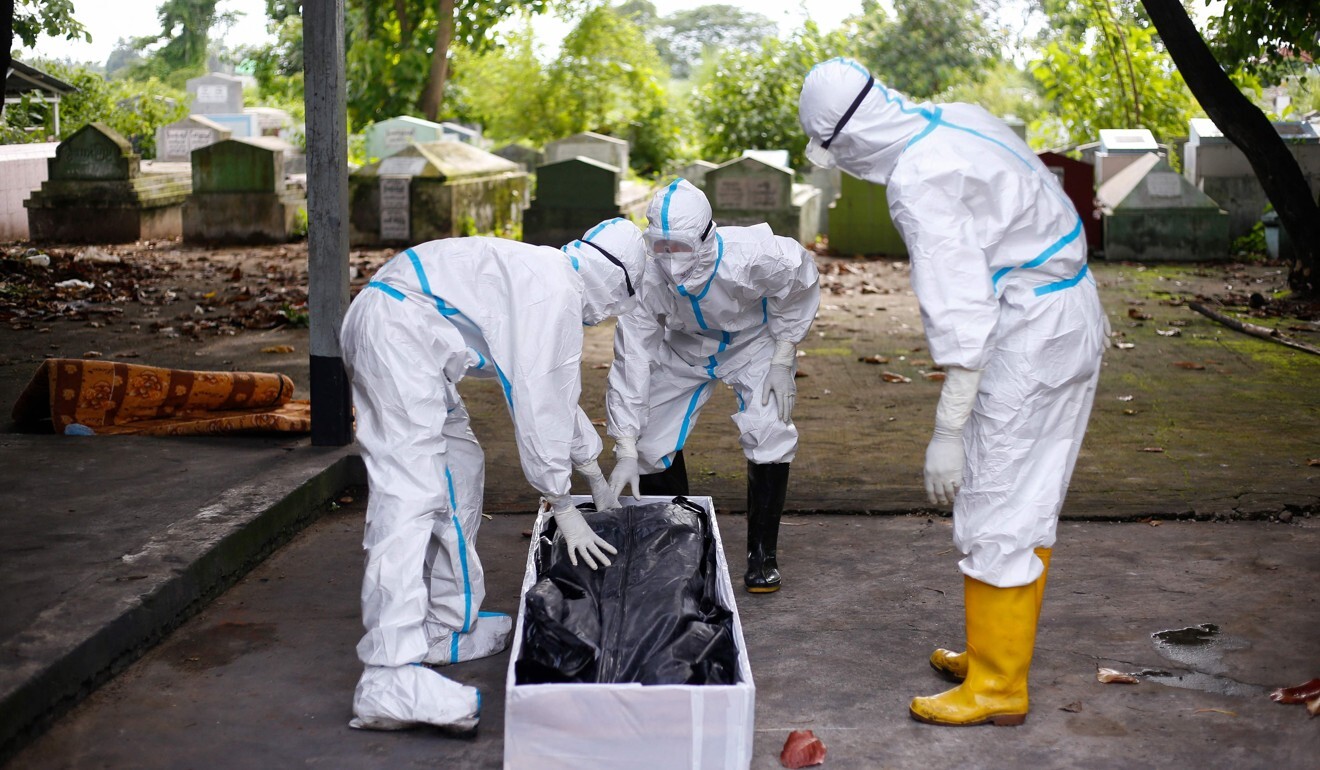
“A major outbreak of Covid-19 would affect everyone in Myanmar and would have devastating consequences for the health of the population and for the economy,” said Ramanathan Balakrishnan, United Nations’ acting resident coordinator and humanitarian coordinator for Myanmar. “Given the reduced levels of testing, the high positivity rate among people tested is of great concern.”
While Myanmar tested an average of about 20,000 people per day during the second virus wave under Suu Kyi-led civilian government, the number has sharply declined since the military seized power. The positivity rate now hovers around 25 per cent, official data shows.
Some health experts say Myanmar’s real rate of infection is likely to be far higher given the collapse in testing since the coup.
Chinese border city in lockdown after 15 cases and Delta link found
The flare-up in infections over the past month has triggered wider stay-at-home orders and travel restrictions. The government last week extended a series of movement curbs, including a ban on international flights for a month through July 31.
Forty prisoners tested positive for Covid-19 in Myanmar’s main jail housing some of the thousands of anti-coup protesters who have been arrested by the junta, BBC Burmese language news reported on Thursday, citing a prison official.
Authorities at the colonial-era jail have stopped sending prisoners to attend court hearings either at a special facility inside the jail or to courts in the city, Zayar Lwin, an activist and former political prisoner who was freed from Insein in April, told Reuters.
The BBC report said authorities at jails in other parts of the country, including in Myaungmya and Taungoo, were also taking action to contain the spread of the virus.
Reporting by Reuters, Bloomberg, Associated Press, Agence France-Presse
